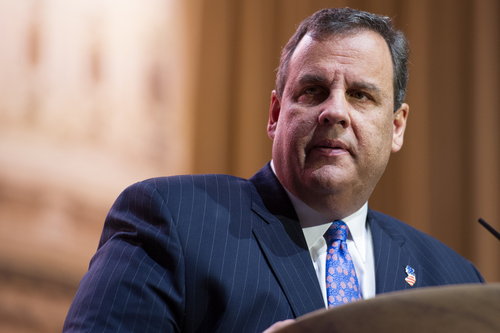In a major ruling handed down today, a New Jersey appellate court said that the state cannot give $11 million in funding to two religious schools. Americans United for Separation of Church and State calls this “the first major state court precedent in almost 40 years concerning New Jersey’s prohibition on using taxpayer funding to support a religious ministry.”
First, some background: In November of 2012, the voters of New Jersey agreed to spend $750,000,000 on construction projects at the state’s institutions of higher learning. Combined with other technology and infrastructure funds, that number later jumped to $1,300,000,000.
What we didn’t know was which schools would get how much money.
By mid-2013, Governor Chris Christie’s administration proposed a list of 176 projects at 46 different universities.

The problem was that two of the universities, slated to receive $11,000,000 in taxpayer-approved money in total, were religious:
$10.6 million [is proposed] for Beth Medrash Govoha, an all-male Orthodox Jewish rabbinical school in Lakewood, and $645,313 [is proposed] for Princeton Theological Seminary, a 200-year-old school that trains male and female Christian ministers.
If you think that offering taxpayer money to schools that only admit students of a particular religious faith in order to prep them to become religious leaders sounds illegal… you would be right. So how did that even happen?
The higher education bond bill, introduced last June 14 and co-sponsored by Senate President Stephen Sweeney (D-Gloucester) and Minority Leader Tom Kean (R-Union), allowed public and private universities to get funds. Lawmakers said private universities like Seton Hall were eligible, but explicitly excluded “any educational institution dedicated primarily to the education or training of ministers, priests, rabbis or other professional persons in the field of religion.”
Beth Medrash Govoha has long employed one of the top lobbyists in Trenton, Dale Florio, head of Princeton Public Affairs Group, to pursue its interests, Election Law Enforcement records show. Florio met with lawmakers in the Assembly and Senate seeking changes to the bill, records show. Princeton Public Affairs was paid $25,000 by Beth Medrash Govoha last year, according to the firm’s annual report.
On June 21, Sweeney amended the bill and struck the religious exclusion, legislative records show. The amended bill passed both houses days later and voters approved the bond referendum in November.
In other words, money wasn’t going to go to any religious school… until a lobbyist for one of the schools convinced a state legislator to change the rules.
In June, a number of organizations, including Americans United for Separation of Church and State and the ACLU of New Jersey, filed a lawsuit against Rochelle Hendricks (Secretary of Higher Education) and Andrew P. Sidamon-Eristoff (State Treasurer) to prevent the religious schools from getting the cash:
“Religious institutions should pass the plate to the faithful, not the taxpayers,” said the Rev. Barry W. Lynn, executive director of Americans United. “Clergy training is the responsibility of religious communities, not the government.”
“We support freedom of religion; however the government has no business funding religious ministries,” said Ed Barocas, legal director of the ACLU of New Jersey. “Taxpayers should not foot the bill to train clergy or provide religious instruction, but the state is attempting to do exactly that.”
…
“As a member of the clergy, I recognize the important responsibility that faith groups have in training their next generation of leaders,” said the Rev. Craig Hirshberg, executive director of UULMNJ. “However, their religious studies should not be funded by taxpayers. When the government financially supports religious groups, it provides privileges to particular religions over others and diverts designated public funds away from programs that should benefit all citizens.”
Among other things, the lawsuit called into question whether lawmakers were adhering to Article 1, Paragraph 3 of the state’s constitution:
… nor shall any person be obliged to pay tithes, taxes, or other rates for building or repairing any church or churches, place or places of worship, or for the maintenance of any minister or ministry, contrary to what he believes to be right or has deliberately and voluntarily engaged to perform.
The money reserved for those religious schools has been on hold since the lawsuit was filed.
It’s been a long time coming, but today, a New Jersey appellate court ruled in favor of church/state separation.
“This is a victory for civil rights and a victory for New Jersey taxpayers, who should never have to subsidize institutions that discriminate or that exist to teach their particular religious doctrine,” said ACLU-NJ Legal Director Ed Barocas. “Everyone has a fundamental constitutional right to worship freely. At the same time, the government must respect the right of New Jersey taxpayers to know that their money will never be responsible for propping up particular sects’ religious ministries.”
…
“New Jersey’s Constitution forbids giving state funding to divinity schools, and for very good reason,” said Alex J. Luchenitser, Americans United’s Associate Legal Director. “Tax dollars should go toward projects that benefit all the people of the state, not ones that aid only particular faiths.”
…
“Today’s ruling sends a powerful reminder that the government shouldn’t be in the business of underwriting clergy training or subsidizing discrimination,” said Daniel Mach, Director of the ACLU Program on Freedom of Religion and Belief.
The full decision is here. No word yet if the state will appeal, but it’s undoubtedly a lost cause and a(nother) waste of taxpayer money. The money always should have gone to public institutions, and this ruling will make sure it does.
(Image via Christopher Halloran / Shutterstock.com. Large portions of this article were published earlier)



It’s Moving Day for the Friendly ..."
It’s Moving Day for the Friendly ..."
It’s Moving Day for the Friendly ..."
It’s Moving Day for the Friendly ..."